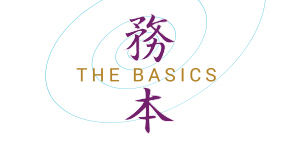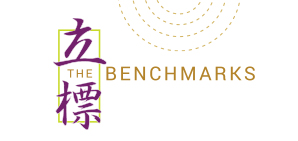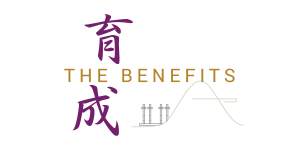- Foreword
- The Basics
- The Benchmarks
- The Benefits
- More
- CUHK State Key Laboratories
- State Key Laboratory of Oncology in South China (Partner Laboratory in The Chinese University of Hong Kong)
- State Key Laboratory of Agrobiotechnology (Partner Laboratory at The Chinese University of Hong Kong)
- State Key Laboratory of Phytochemistry and Plant Resources in West China (Partner Laboratory in The Chinese University of Hong Kong)
- State Key Laboratory of Synthetic Chemistry
- State Key Laboratory of Digestive Disease (Partner Laboratory in The Chinese University of Hong Kong)
- Institute of Chinese Studies
- Shenzhen Research Institute
- Knowledge Transfer: the Third Mission of the University
- Research Institutes
- Research in Numbers
- CUHK State Key Laboratories



The German-born American rocket engineer Werner von Braun (1912–77) once said: “Basic research is what I am doing when I don’t know what I am doing.”
Basic research can sometimes obfuscate not only laymen but also the scientists themselves, probably because it often seeks to answer basic questions like how life begins, the origin of the universe or why, in the words of Bertrand Russell, “numbers hold sway above the flux”.
In 1990, the first twins in Hong Kong produced from frozen-thawed embryos in test-tubes were born, a result of the efforts in embryo preservation and implantation by CUHK medical researchers. CUHK researchers continue to take on life’s mysteries, as can be seen in the work of Prof. Chan Hsiao-chang on epithelial ion channels and their roles in human infertility.
Plant life has also been the subject of CUHK’s research focus from the early days. Decades ago, Prof. Chang Shu-ting’s pioneering work in fungal genetics had inaugurated the “Mushroom Science”. Today, exciting new grounds are being opened up, for example, by Prof. Jiang Liwen’s discovery of a new organelle in plants.
CUHK has developed strong disciplines in the physical sciences, credit to a long line of outstanding chemists and physicists but not least to supportive friends like Prof. C.N. Yang, Nobel laureate in physics. The quest to get to the basic answers is exemplified in Prof. Xie Zuowei’s building a large carborane hardly imaginable at the time, and Prof. Chu Ming-chung’s courting of the elusive neutrinos.
Prof. Yau Shing﹣tung, CUHK alumnus, Fields Medalist and Wolf Prize laureate in mathematics, has made many seminal discoveries in his career. His fellow mathematicians at CUHK are busy with tilling the many parcels in the field, including Prof. Wei Juncheng in non-linear patterns in spatial dimensions.
The history of science is full of conjugated terms–e.g., the Yang–Mills Theory, the Calabi–Yau manifolds–denoting collaboration and emulation. CUHK has no lack of team work in research, whether it be among colleagues or involving students or peers from other institutions. Some teams and their work are presented in this volume. But such a glimpse can in no way do justice to how vibrantly research, basic or applied, is being carried out by the community of scholars on campus.

Ever since its inception 50 years ago, CUHK has embraced research as one of its primary missions. Within a half century, it has developed into a comprehensive research-orientated university and topped the bench and left its marks in many areas in the arts, the humanities, the sciences and the social sciences.
In the early days, the University was the cradle of Neo-Confuciansim and home to its representative figures such as Tang Chun-I, Mou Tsung-san and Liu Shu-hsien. In 1988, the late Prof. D.C. Lau and Dr. Chen Fong-ching initiated the CHANT (Chinese Ancient Texts Database) project which eventually made the entire corpus of extant pre-Han and Han classical texts available electronically to sinologists and Chinese scholars. Another undertaking, the Hong Kong Literature Archive almost singlehandedly completed by Prof. Lo Wai-luen, has become an essential resource for the study of contemporary Hong Kong literature and culture.
Sociology, with an emphasis on empirical research and quantitative methods, had a very solid beginning at CUHK and made its mark in promoting social research in Hong Kong and in training sociologists on the mainland. The study of human behaviour is distinguished by the development of cross-cultural references and tests, most notably the Cross-cultural (Chinese) Personality Assessment Inventory led by Prof. Fanny M.C. Cheung. Sport science research at CUHK has impact on international academic communities as well as local sport fields, as the group led by Prof. Stephen H.S. Wong has demonstrated.
Prof. Charles K. Kao, former Vice-Chancellor and Nobel Laureate in Physics, had not only revolutionized telecommunications technology but also laid a firm foundation for the engineering sciences at CUHK. Today, Prof. Raymond Yeung and Prof. Robert Li’s seminal work in network coding is rewriting the rapidly outdated annuals of information technology. In a region where nasopharyneal cancer is a common form of cancer, the late Prof. Dolly P. Huang and Prof. Lo Kwok-wai’s pioneering work has laid down the model and standard practice for better understanding and treatment of the disease.
In addition to those mentioned above, many more trailblazers at CUHK have broken old molds, forged new tools and vocabularies, and bequeathed their formidable legacies to their peers and successors.

Peter Medawar (1915–87), a Nobel scientist and famed essayist, once said, “If politics is the art of the possible, research is surely the art of the soluble. Both are immensely practical-minded affairs.” Research is indeed rarely separable from the effects it has on and the good it does to the people or society at large.
Soluble and practical-minded. Perhaps no two words better describe the commercial hub that is Hong Kong. Prof. Cheung Waiman’s study of the RFID technology is a good example of the cutting edge relevance of business research at CUHK.
Medical innovations can lead to the saving of the lives and limbs of millions. In the early 1990s, CUHK performed the first paediatric marrow and liver transplants in Hong Kong, and innovated in the use of microsurgery to treat age-related macular degeneration. Today, CUHK still leads in, among other things, the prevention and treatment of upper gastrointestinal bleeding and cardiac resynchronization therapy.
Prof. Dennis Lo has reassured many an expecting mother with his groundbreaking prenatal diagnosis and is moving on to developing an even more significant diagnostic methodology. What Prof. Samuel Sun and Prof. Lam Hon-ming have been doing in rice and soybean is so fundamental and important that the recipients of the benefits number in the millions.
Every schoolboy has heard of global warming, but very few are doing real things to help. Prof. Edward Ng has taught us a few things about the city we live in and what we could do to help make it a little more habitable and comfortable.
And let us not forget about the disadvantaged. CUHK scholars often lead social service initiatives such as CADENZA and I • CARE. No wonder some of them have been given humanitarian laurels. Prof. Leung Ping-chung, Prof. Edward Ng, and more recently Prof. Gladys Tang, who has brought as normal an education as possible to hearing impaired children.
Space permits only a cursory look at a small sample of scholars who have become, wittingly or unwittingly, Good Samaritans. Their other colleagues at CUHK, in their pure pursuits of what intellectually prod them on, are making far-reaching contributions to how we live, breathe, eat and raise our children.
CUHK: Five Decades in Pictures | CUHK: Focus at 50 | The Call of CUHK Colleges
CUHK Home | ISO Home | Contact Us | Disclaimer | Privacy Policy
Copyright © 2025. All Rights Reserved. The Chinese University of Hong Kong.